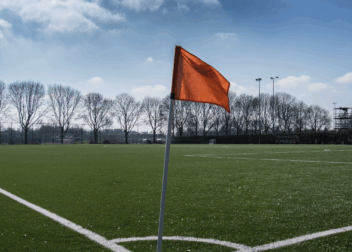The Role of NIL Agents in Protecting Athlete Eligibility
- September 20, 2025
- NIL Agent, Student Athlete
- 2 mins read
One of the biggest fears athletes and families have in the NIL era is simple: What if I lose my eligibility because of a bad deal?
That concern is real. A single contract that violates NCAA, state, or school rules could sideline your career. This is why the role of an NIL agent goes beyond finding sponsorships—they’re also a safeguard for your eligibility.
Why Eligibility Protection Matters
Unlike professional athletes, college and high school athletes play under strict amateurism rules. Accepting the wrong payment, signing with an unapproved company, or failing to disclose a deal could:
Make you ineligible to compete
Lead to lost scholarships
Damage your reputation with schools and teams
The right NIL agent understands that your eligibility is the foundation of every opportunity.
How NIL Agents Help Protect Eligibility
1. Reviewing Contracts for Compliance
NIL contracts aren’t just about money—they also need to pass compliance checks. An agent ensures the terms:
Align with NCAA rules
Follow your state athletic association’s policies
Meet your school’s disclosure requirements
Without this review, you risk signing a deal that looks great but jeopardizes your ability to play.
2. Coordinating With School Compliance Offices
Every school handles NIL differently. A good NIL agent:
Communicates with compliance staff before contracts are signed
Submits required forms and disclosures on time
Keeps you updated on any new school or conference rules
This coordination keeps everyone on the same page.
3. Identifying Restricted Categories
Many schools and state laws restrict NIL deals in certain industries (such as alcohol, tobacco, gambling, or adult entertainment). An agent helps you avoid contracts that could:
Violate team rules
Conflict with existing school sponsorships
Damage your public image
4. Monitoring Rule Changes
NIL regulations are evolving fast. States are passing new laws, schools are updating policies, and the NCAA continues to refine its stance. NIL agents stay on top of these changes so you don’t accidentally step out of bounds.
5. Acting as a Buffer Against Scams
Unfortunately, not every NIL opportunity is legitimate. Scammers prey on young athletes with fake offers that promise big money. Agents help filter out these bad actors by:
Vetting companies before you sign
Checking contracts for unfair clauses
Ensuring payments are properly documented
Questions to Ask Your Agent About Eligibility
How do you stay updated on NIL compliance rules?
Do you work directly with my school’s compliance office?
How do you handle deals in restricted categories?
What steps do you take before I sign any contract?
Final Takeaway
In the NIL era, protecting eligibility is just as important as signing deals. A strong NIL agent is more than a negotiator—they’re your safeguard against losing the very thing that makes NIL possible: your ability to compete.
At NIL Agent Directory, we make it easier for athletes and families to connect with agents who understand compliance and who prioritize eligibility as much as earnings.


